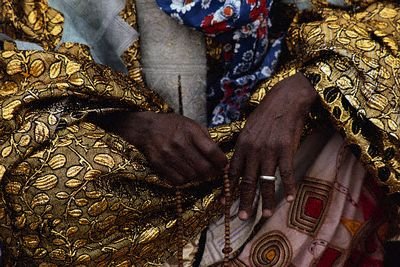By
Reuters
Reuters
Published
Dec 6, 2010
Dec 6, 2010
Nigeria scraps ban on textile, furniture imports
By
Reuters
Reuters
Published
Dec 6, 2010
Dec 6, 2010
ABUJA, (Reuters) - The Nigerian government said it would abolish import bans on goods including textiles and furniture, a decision that could help attract retailers to one of the world's largest untapped consumer markets.
 |
Finance Minister Olusegun Aganga said the bans, particularly on finished textiles, were meant to protect domestic industry but had encouraged corruption and hindered growth in the retail sector in Africa's most populous country.
In an annual briefing on sub-Saharan Africa's second-biggest economy, he said import tariffs would be imposed instead.
"Import bans are ineffective and result in a huge revenue loss to the government through significant trade diversion to neighbouring countries and the routine smuggling of banned goods," Aganga said in the review, released on Monday.
"It is expected these trends are likely to continue; therefore we have received presidential approval to replace the bans with tariffs to protect domestic industries."
Nigeria banned imports of finished textiles and designs to try to give domestic manufacturers a chance to thrive.
The domestic industry has all but collapsed because of chronic electricity shortages, which force manufacturers to rely on expensive generators and make local production uncompetitive. The smuggling of cheap goods from Asia has also been crippling.
PERCENTAGE OF REVENUE
Aganga said levies and duties of between 10 and 20 percent would be imposed on imports including furniture, textiles and energy drinks. The age ban on imported motor vehicles would be raised to 15 years from the time of manufacture, up from 10 years.
A percentage of revenue from the tariffs would be set aside for the Bank of Industry, a government-backed bank designed to support the manufacturing sector, except for income from textiles, which would be used to support the domestic textile industry.
New shopping malls have been springing up in the commercial capital Lagos and other cities around Nigeria, but they mostly sell consumables and electronics. Clothes retailers have yet to establish themselves, partly because of the import ban.
Private equity firm Actis and South Africa's Rand Merchant Bank (RMMMu.J) said earlier this year they had agreed to help finance a $100 million shopping mall in Ikeja, a sprawling middle-income neighbourhood of Lagos.
South African-listed grocery chain Spar Group (SPPJ.J) opened its first store in Nigeria in August and South African retailer Shoprite has said it is planning dozens of new shops in the country in the next decade.
Most of Nigeria's 140 million people live on $2 a day or less, but there is a growing middle class.
There are still significant logistical difficulties for foreign companies seeking a foothold in Nigeria, including its shambolic transport and infrastructure network.
By Felix Onuah
(Writing by Joe Brock; editing by Nick Tattersall)
© Thomson Reuters 2024 All rights reserved.

























